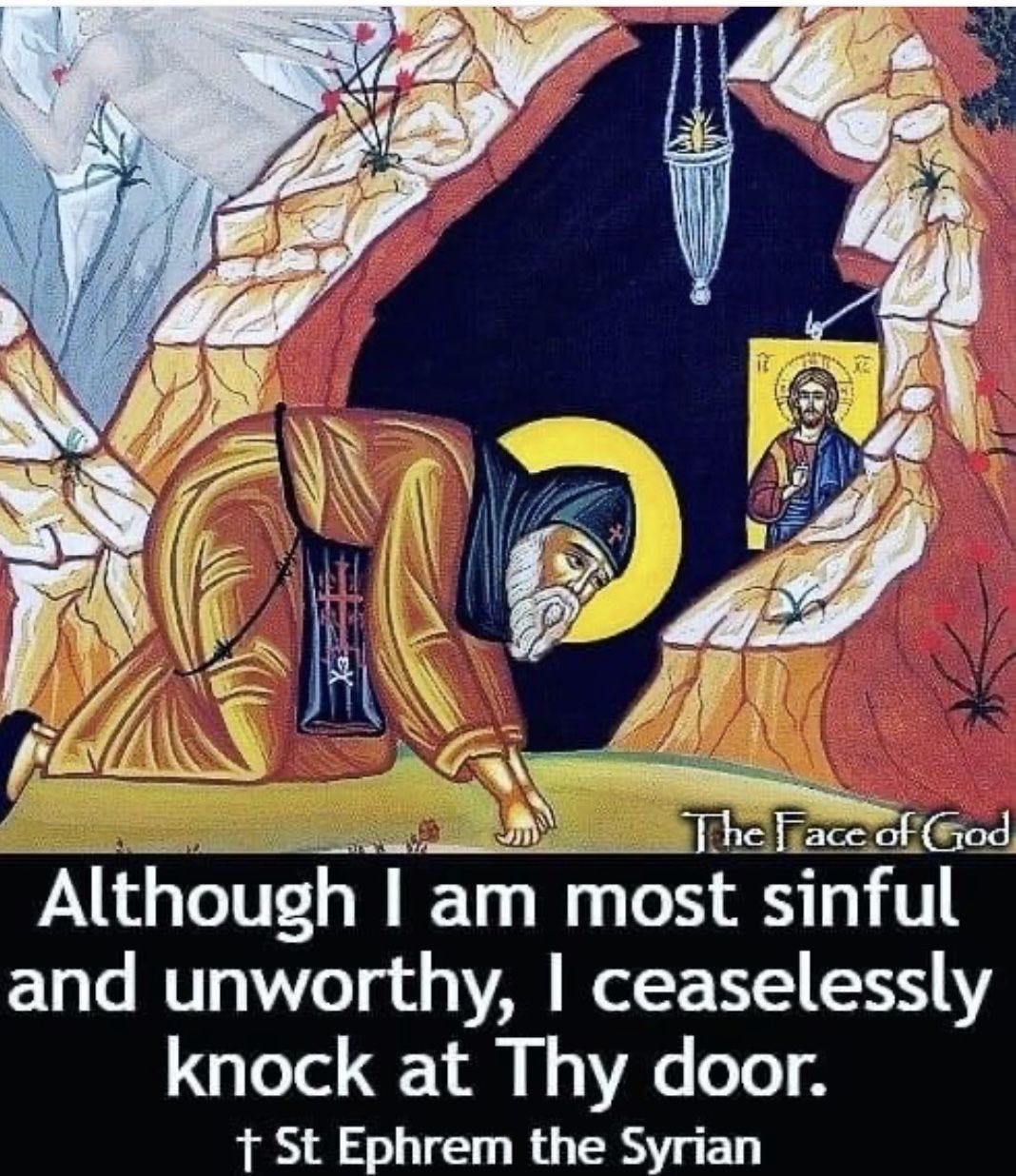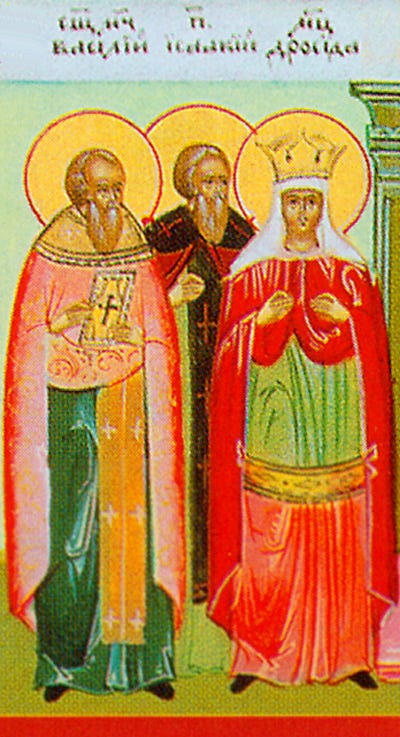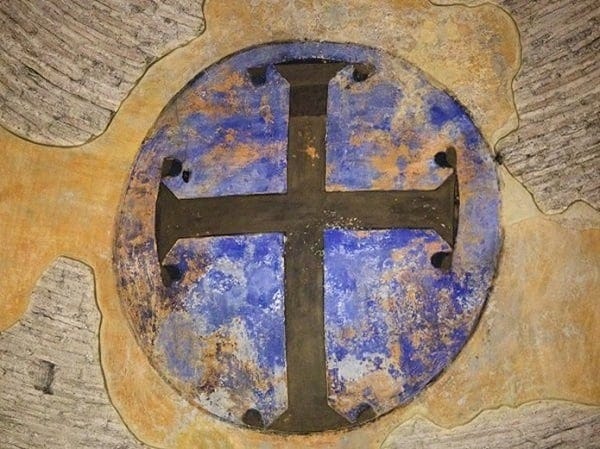1 Thessalonians 4:13-17 (Epistle, Departed)
13 But I do not want you to be ignorant, brethren, concerning those who have fallen asleep, lest you sorrow as others who have no hope.
14 For if we believe that Jesus died and rose again, even so God will bring with Him those who sleep in Jesus.
15 For this we say to you by the word of the Lord, that we who are alive and remain until the coming of the Lord will by no means precede those who are asleep.
16 For the Lord Himself will descend from heaven with a shout, with the voice of an archangel, and with the trumpet of God. And the dead in Christ will rise first.
17 Then we who are alive and remain shall be caught up together with them in the clouds to meet the Lord in the air. And thus we shall always be with the Lord.
John 5:24-30 (Gospel, Departed)
24 Most assuredly, I say to you, he who hears My word and believes in Him who sent Me has everlasting life, and shall not come into judgment, but has passed from death into life.
25 Most assuredly, I say to you, the hour is coming, and now is, when the dead will hear the voice of the Son of God; and those who hear will live.
26 For as the Father has life in Himself, so He has granted the Son to have life in Himself,
27 and has given Him authority to execute judgment also, because He is the Son of Man.
28 Do not marvel at this; for the hour is coming in which all who are in the graves will hear His voice
29 and come forth – those who have done good, to the resurrection of life, and those who have done evil, to the resurrection of condemnation.
30 I can of Myself do nothing. As I hear, I judge; and My judgment is righteous, because I do not seek My own will but the will of the Father who sent Me.
Hieromartyr Basil of Ancyra
Hieromartyr Basil was a presbyter in Ancyra, Galatia. Fighting against the Arian heresy, he urged his flock to cling firmly to Orthodoxy. Because of this Saint Basil was deposed from his priestly rank by a local Arian council, but a Council of 230 bishops in Palestine reinstated him.
Saint Basil openly continued to preach and denounce the Arians. Therefore, he became the victim of persecution and was subjected to punishment as a man dangerous to the state. Two apostates, Elpidios and Pegasios, were ordered to turn Saint Basil from Orthodoxy. The saint remained unshakable, and was again subjected to tortures.
When the emperor Julian the Apostate (361-363) arrived in the city of Ancyra, Saint Basil bravely confessed Christ before him at the trial, and denounced the emperor for his apostasy. Julian ordered that strips of skin be cut from the saint’s back. Saint Basil endured the gruesome torture with great patience.
When they began to beat his shoulders and stomach with red-hot rods, he fell down upon the ground from the torments and cried out, “O Christ, my Light! O Jesus, my Hope! Quiet Haven from the stormy sea. I thank You, O Lord God of my fathers, that You have snatched my soul from the pit of Hell and preserved Your Name in me unstained! Let me finish my life a victor and inherit eternal life according to the promise You gave my fathers. Now accept my soul in peace, remaining steadfast in this confession! For You are merciful and great is Your mercy, You Who live and sojourn throughout all the ages. Amen.”
Having made such prayer, and lacerated all over by the red-hot rods, the saint fell into a sweet slumber, giving up his soul into the hands of God. The Hieromartyr Basil died June 29, 362. His commemoration was transferred to March 22 because of the Feast of Saints Peter and Paul.
This saint should not be confused with Saint Basil of Ancyra (January 1), a layman.
Sunday after the Elevation of the Honorable Cross: the Three Conditions for our Salvation
By Metropolitan Panteleimon of Veria, Naousa and Kampania
‘Let those who desire to come after me deny themselves, and take up their cross and follow me’ (Mark 8, 34).
A few days ago, our Church celebrated the universal elevation of the honorable and life-giving Cross; and today, the Sunday after the Elevation, the Gospel reading reminds us of the importance of the Cross in our lives. Because, although Christ ascended the Cross for our salvation and although his Cross is a symbol of strength and hope for all those who believe in him, theoretical faith isn’t enough; practical proof of this faith is also required. This is achieved in the manner indicated by Christ in today’s Gospel reading, when he says: ‘Let those who desire to come after me deny themselves, and take up their cross and follow me’.
Christ’s words aren’t merely an invitation; they’re also a definition of the three conditions required for us to show our faith and to make our own the salvation and redemption which Christ offered through his death on the Cross.
The first is our free will in choosing this path. Christ is clear. No-one’s forced to follow him. Nobody’s pressured and nobody’s blackmailed. ‘Those who desire’. Only people who want to follow him can do so.
The second condition is that we should deny ourselves: ‘Let them deny themselves’. Whatever holds us fast to our habits and passions, whatever binds us to the earthly and worldly, whatever’s hard for us to do without, even if it’s not bad, even if it’s not sinful, isn’t compatible with our decision to follow Christ.
We people often think that we can manage to do everything. We believe we can live our life as we please, however we like, and, at the same time, be members of the Church and think we’re living a Christian life. But Christ makes it plain: those who follow him have to be completely dedicated to him. We can’t leave the path or let our eyes stray, because then we wouldn’t be following him; we can’t ‘serve two masters’.
So if we truly wish to follow Christ, then, as far as we can, we must deny ourselves, close our ears to the siren-calls of the world and cleave to Christ, whom we shouldn’t let out of our sight for as long as we’re alive on this earth.
Naturally, this denial which Christ requires from us isn’t a momentary decision or action, it’s a life-long struggle which we have to fight on a daily basis. And it’s required because otherwise we can’t meet the third condition, which is that we take up our cross.
‘Let them take up their cross’, Christ asks of those who would follow him. So we can’t follow him unless we take up our cross. We can’t follow Christ without difficulties and effort, without sacrifices and without tears. No cross is painless, no cross can be light. This is why Christ sets self-denial as a condition for us to raise our cross. Only if we’re free of other burdens will we be able to raise our cross. Otherwise, we won’t be able to bear the weight, we’ll collapse and give up the attempt. And the aim is for us to reach the end, to reach our goal.
Let us therefore strive, my brothers and sisters, to fulfill the conditions which Christ set, so that we, too, may bear our cross with patience and reach our destination, united with him, so that we may enjoy the eternal life which he gave us through his sacrifice on the Cross.
This week’s calendar reminders:
Monday 3/17: Lenten Matins 8:30 am
Tuesday 3/18: no services or events
Wednesday 3/19: Presanctified Liturgy 6:30 pm (potluck meal to follow)
Thursday 3/20: Lenten Matins 8:30 am
Friday 3/21: Paraklesis to the Theotokos 8:30 am
Saturday 3/22: Memorial Liturgy for the Departed 9:15 a.m.; Catechumen Class 4:30 pm; Choir Rehearsal 4:30 pm; Great Vespers 6 pm
Sunday 3/23: Divine Liturgy 9:15am;
CLICK BELOW to donate online:
Christ the Savior Orthodox Church is located in Southbury, Connecticut, and is part of the New England Diocese of the Orthodox Church of America.
Mailing address: Christ the Savior Church, 1070 Roxbury Road, Southbury, CT 06488
PLEASE DONATE to help our parish do the work of the Lord, thrive and grow, and extend the Kingdom of God. May the Lord bless your generosity!
Fr. Moses Locke can be reached at frmoseslocke@gmail.com











